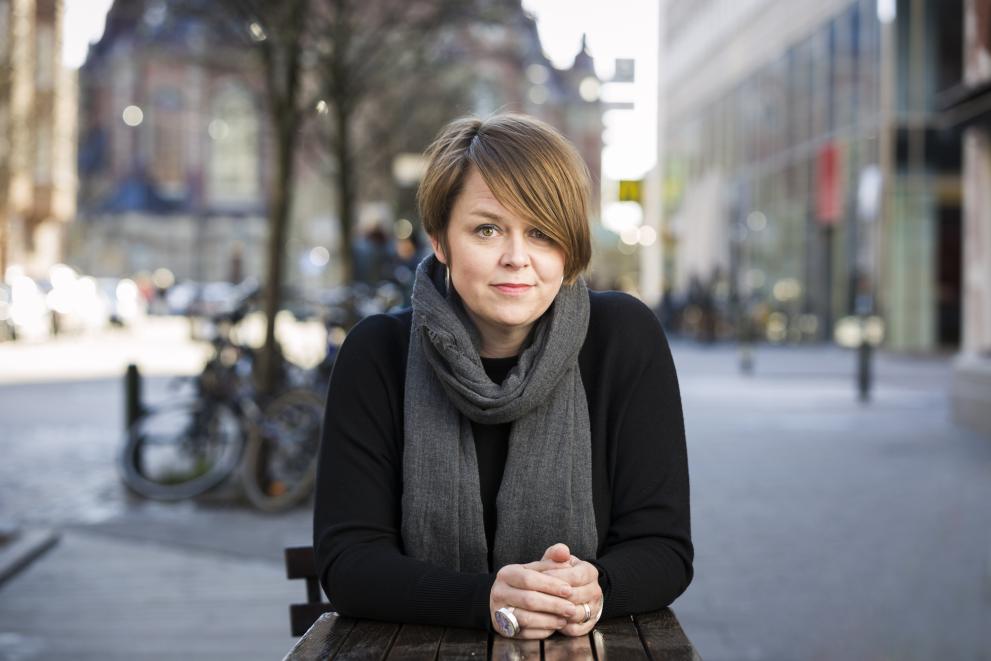
Katrin Stjernfeldt Jammeh has served as Mayor of Malmö, Sweden’s third largest city, since 1 July 2013. Mayor Stjernfeldt Jammeh also currently serves on the national board of Sweden’s Association of Local Authorities and Regions (SALAR). Katrin is an active representative for Malmö abroad, serving as the First Vice President of ICLEI and as Chair of Procura+ Network. Under Katrin’s leadership Malmö has garnered an international reputation for being a sustainable, open and progressive city that has been chosen by the EU to become one of 100 climate neutral European cities by 2030.
As Mayor of the City of Malmö, Sweden, can you tell us about the city's commitment to sustainable public procurement (SPP)?
Malmö is a fast-growing city that has set an ambitious target: by 2030 the city shall be climate-neutral. In order to reach the city’s lofty goals, all sectors and actors in the city must work together towards creating a more sustainable whole. As one of Sweden’s largest public purchasers of goods and services, with sums totalling up to almost €900 million annually across the city, sustainable public procurement plays a pivotal role in achieving this.
The city’s procurement policy states that all purchases must take economic, environmental, and social responsibility. This means that sustainable procurement is not only about minimising CO2 emissions, but also about promoting equitable working conditions and actions promoting employment, and ensuring that ILO core conventions are followed, to name but a few examples.
This year, the 11th Procura+ Conference will be held in Lisbon, Portugal. As First Vice President and Chair of the Procura+ Network, can you tell us what is the importance of the conference and what are you most looking forward to?
Creating a more sustainable society is no easy task, and public authorities and local authorities need and seek guidance and inspiration.
The Procura+ conferences have been helping public procurement professionals maximise their potential for the past 25 years and offers a unique platform for knowledge-sharing and networking opportunities.
I look forward to welcoming new and old friends amongst the public authorities of the Procura + Network to Lisbon, and to hopefully be able to borrow their best ideas and success stories and bring them back to Malmö.
The message of this year's Procura+ Conference is "step changes for big impact". What does this mean for you, and can you give some recent examples of how Malmö's public procurement activities have made an impact?
Ultimately, sustainability is about meeting the needs of today without compromising the ability of future generations to meet theirs. If we are to succeed in this task we must make drastic changes to the way we think, act and consume. Creating a more circular economy means that we must go from talk to action.
By implementing circular demands and through dialogue with private enterprises, Malmö has managed to increase suppliers' will and ability to deliver innovative and circular solutions.
For example, the city today has developed a circular sign policy. The goal is to reduce the need for new signs, and at the same time design new signs that are easy to repair and to change the information they convey, as well as updating old signs with new information. Producing new signs has a substantial negative impact on the environment through the extensive use of aluminium and plastics, and the new policy has extended the lifespan of the city’s many public signs.
Another success story from Malmö concerns furniture procurement. Through deals with four different suppliers of office furniture it has become easy to buy used office furniture, as well as renting, repairing and redesigning furniture. It is also possible to sell old furniture to suppliers that are then sold to different organisations. This circular policy has extended the life cycle of the city’s furniture and has had a significant positive impact on the city’s carbon footprint every year. In light of its success, the city is now moving onto incorporating school furniture into the circular procurement policy as well.
How do conferences such as this one contribute to the further professionalisation and implementation of sustainable public procurement?
No city is an island, and it is only by learning from one another that we can maximise the enormous potential in sustainable public procurement. Malmö is a city that takes pride in being open and welcoming to both people and new ideas, and this conference is an excellent opportunity to talk to experts and peers, and to share our experiences and successes.
Looking ahead, what do you think needs to be done?
Placing demands on suppliers is important, but having the right organisation is of equal – if not greater – importance.
Training and building your organisation's capacity is paramount. We have high ambitions in Malmö, with clear and ambitious goals of creating a more sustainable city. In order to achieve these goals we must quantify our objectives and continuously follow up on our progress, so that we know what still remains to be done.
Details
- Publication date
- 26 February 2024
- Author
- Directorate-General for Environment
